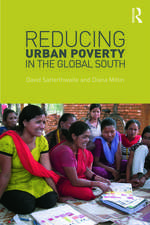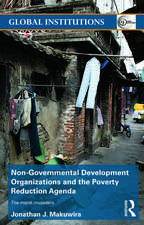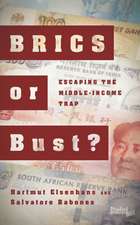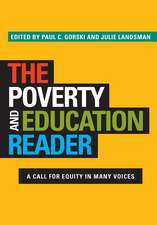The Future of Development: A Radical Manifesto
Autor Gustavo Esteva, Salvatore Babones, Philipp Babcickyen Limba Engleză Paperback – 8 oct 2013
In his 1949 inaugural address, President Harry S. Truman heralded the era of international development, a “worldwide effort for the achievement of peace, plenty, and freedom” that would aim to “greatly increase the industrial activity in other nations and. . . . raise substantially their standards of living.” At the time, more than half of the world’s population lived in areas defined as underdeveloped; today, that figure surprisingly remains the same. Arguing that such persistent stagnation resulted partly from poor comprehension of the terms “developed” and “underdeveloped,” this provocative book revises our understanding of these fraught concepts.
Demystifying the statistics that international organizations use to measure development, the authors introduce the alternative concept of buen vivir: a state of living well. They contend that everyone on the planet can achieve this state, but only if we all begin living as communities rather than individuals and nurture our respective commons. With their unique take on a famously difficult issue, they offer new hope for the future of development—and of humankind.
| Toate formatele și edițiile | Preț | Express |
|---|---|---|
| Paperback (1) | 217.32 lei 3-5 săpt. | |
| Bristol University Press – 8 oct 2013 | 217.32 lei 3-5 săpt. | |
| Hardback (1) | 499.36 lei 6-8 săpt. | |
| Bristol University Press – 8 oct 2013 | 499.36 lei 6-8 săpt. |
Preț: 217.32 lei
Nou
Puncte Express: 326
Preț estimativ în valută:
41.58€ • 43.42$ • 34.42£
41.58€ • 43.42$ • 34.42£
Carte disponibilă
Livrare economică 14-28 martie
Preluare comenzi: 021 569.72.76
Specificații
ISBN-13: 9781447301080
ISBN-10: 1447301080
Pagini: 152
Dimensiuni: 140 x 216 x 15 mm
Greutate: 0.23 kg
Ediția:New.
Editura: Bristol University Press
Colecția Policy Press
ISBN-10: 1447301080
Pagini: 152
Dimensiuni: 140 x 216 x 15 mm
Greutate: 0.23 kg
Ediția:New.
Editura: Bristol University Press
Colecția Policy Press
Notă biografică
Gustavo Esteva is an author and grassroots activist who collaborates with the Universidad de la Tierra, Mexico, and other organizations around the world. Salvatore Babones teaches sociology and social policy at the University of Sydney, Australia. Philipp Babcicky is a doctoral student at the University of Graz, Austria.
Cuprins
About the authors
Preface
1 The birth of development and underdevelopment
2 Development statistics and what they tell us
3 Alternatives to the cult of growth
4 There is enough for everyone
5 Reorganizing society from the bottom up
6 The reclamation of the commons
7 Epilogue: A role for the development of scholars and practitioners
Glossary
Index
Preface
1 The birth of development and underdevelopment
2 Development statistics and what they tell us
3 Alternatives to the cult of growth
4 There is enough for everyone
5 Reorganizing society from the bottom up
6 The reclamation of the commons
7 Epilogue: A role for the development of scholars and practitioners
Glossary
Index
Recenzii
“This short and highly readable book is strongly recommended. It covers a broad range of material on development in a concise yet comprehensive way, and relates this to the need for concrete alternatives in today’s messy world. It should be read by activists, students and scholars in the field.”
“Elucidates the contradictions in development approaches very effectively.”
“This book is highly accessible, informative, and potentially inspiring. Gustavo Esteva, Salvatore Babones, and Philipp Babcicky provide a critical reading of the history of ‘development’—how the concept emerged, how it has been measured, and how it transformed our world. The book approaches familiar debates on development—including population growth, food scarcity, and environmental degradation—from a perspective that is both original and thought provoking. And while the vision of change offered here may not satisfy everyone, it should certainly provoke an interesting debate.”
“By radically challenging what they call the colonizing virulence of underdevelopment, the authors of The Future of Development provide a clarion call to arms, a radical manifesto, for unthinking the development enterprise. Their critique and insurrectionary vision will provide insights for scholars and practitioners alike struggling with the past/present/future paradigms and structures of development.”





















